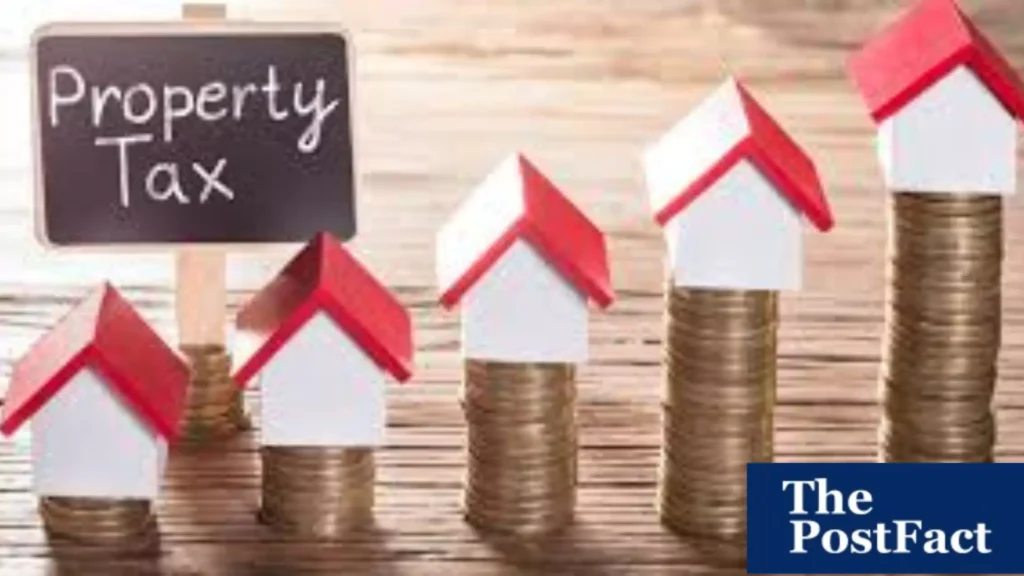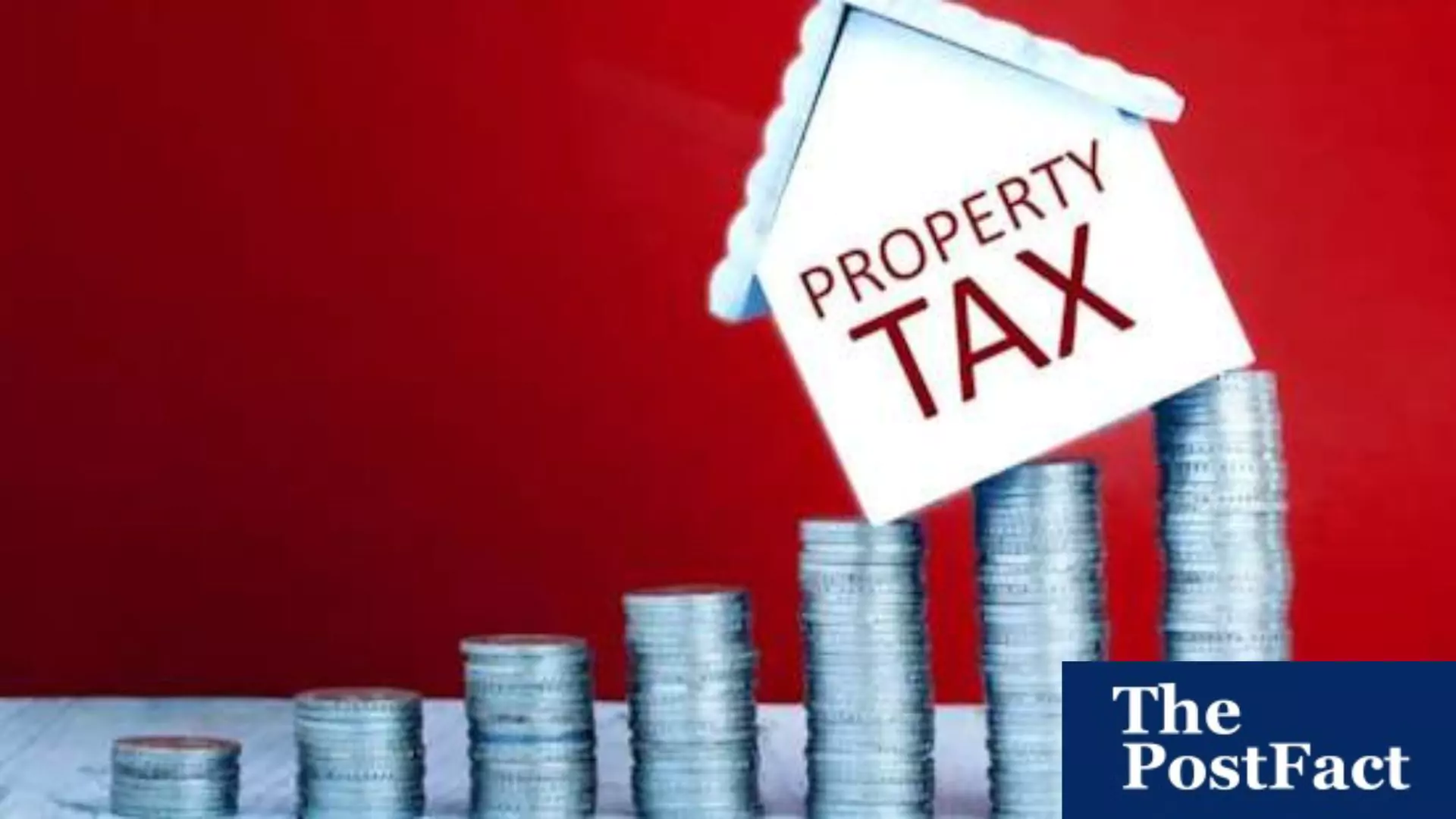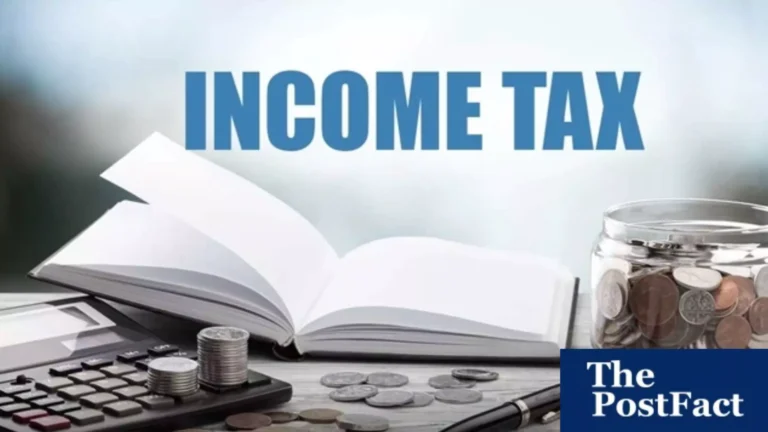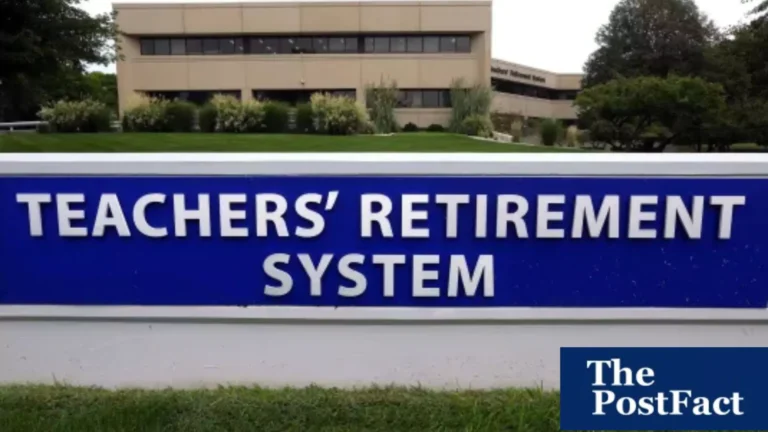What is Property Tax and how to use Property Tax Calculator
Property tax is a tax you pay to the government based on the value of your property. Whether you own a home, land, or even a building, if it has value, you’ll likely have to pay property tax.
Imagine you own a small house. The government will assess how much your house is worth, and from there, they’ll calculate how much you need to pay in property taxes each year.
For example, if your house is valued at $200,000 and the local tax rate is 1%, you would pay $2,000 a year in property tax. This money helps fund local services like schools, police, and public parks, which everyone benefits from.
How Property Tax Helps Your Community
Property taxes are one of the main ways local governments get money to fund important services in your community. When you pay property tax, you’re helping fund things like:
- Public Schools: Property taxes are often the largest funding source for local schools, helping ensure that children in your area get a quality education.
- Police and Fire Departments: Property taxes help pay for the police officers who keep your streets safe and the firefighters who are ready in case of an emergency.
- Roads and Parks: From fixing potholes to maintaining public parks, your property tax helps keep your community in good shape.
When you think about it, property tax is a way for you to give back to the community that supports you. It helps improve the quality of life for everyone around you, from your neighbors to local businesses.
How Property Tax Works in Different Places
The way property tax works can vary depending on where you live. Some areas have higher tax rates, while others have lower rates. It’s important to know how the property tax system works in your area so you can plan for it.
For example, in New York, property tax rates can be higher compared to other states like Texas, where the rates are usually a bit lower but the property values might be higher. Each place sets its own rules, so it’s worth learning how your local government calculates the taxes for properties.
2. How Property Tax Works: The Basics
How is Your Property’s Value Decided?
When it comes to property taxes, the first step is determining how much your property is worth. This is called an assessment.
Think of it like this: if you were going to sell your house, you’d want to know how much it’s worth. The local government does the same thing, but instead of selling, they assess your property to figure out how much tax you should pay.
For example, if your home is valued at $250,000, the government will use that value to calculate your taxes. If your home value increases (say it’s worth $275,000 next year), your property taxes may go up too. The assessed value of your property plays a big role in how much you pay.
What Happens After Your Property is Assessed?
Once your property’s value is determined, the next step is calculating how much tax you’ll owe. This is where the tax rate comes in.
The tax rate is typically set by local governments (like counties or cities) and is usually expressed as a percentage. For example, if the local tax rate is 1.5% and your home is valued at $250,000, your annual property tax would be:
- $250,000 × 1.5% = $3,750 per year.
So, every year, you’d owe $3,750 in property taxes. The tax rate can vary, so it’s important to know the rate in your area. In some places, the tax rate is higher, which means you could pay more even if your home’s value stays the same.
Different Types of Property: How Taxing Works
Property taxes apply to many types of property, not just homes. They can apply to:
- Residential properties like houses, apartments, or condos.
- Commercial properties such as office buildings or retail stores.
- Agricultural land used for farming or ranching.
Each type of property can be assessed and taxed in slightly different ways. For example, commercial properties might have higher tax rates because they generate more revenue than residential properties.
In some areas, agricultural land may have tax breaks to support farming. So, the type of property you own can impact how much tax you pay.
How Your Tax Rate is Set
The tax rate is decided by your local government and is usually a percentage of the value of your property. But how do they set that rate?
Local governments need money to pay for services like schools, roads, and emergency services. They figure out how much they need to raise in taxes to pay for all these services, and then they apply a rate to property values that will raise that amount.
For example, if the local government needs to raise $10 million and there are 5,000 properties in the area, they might set a tax rate that ensures that total amount is collected. The tax rate will depend on how much the government needs.
Why Tax Rates Change
Tax rates can change from year to year. They can go up or down depending on the needs of your local government and changes in the economy. If there’s a new school being built or a large road project in the works, the tax rate might increase to cover the cost.

3. Who Pays Property Tax? Let’s Break It Down
Property Owners: The Primary Taxpayers
When you own property, whether it’s a home, a piece of land, or a commercial building, you are responsible for paying property taxes. This is the case for most property owners. The government looks at the value of your property and calculates how much you owe.
For example, if you own a house worth $150,000 and the local tax rate is 1%, you’ll pay $1,500 annually in property taxes. This is your responsibility as the owner of the property.
Owning a home or land comes with this financial obligation, and it’s important to stay on top of your payments. This is how communities fund vital services like education, roads, and emergency services.
Renters: How Property Tax Affects You Too
Now, if you’re renting a property, you might think property taxes don’t concern you. But here’s the thing: property tax affects renters too, even though you don’t pay it directly.
Landlords, who own the property you’re renting, often pass on the cost of property taxes in the form of higher rent. So, while you may not be writing a check to the government for property taxes, the cost is indirectly included in your rent.
Let’s say you’re renting an apartment. If the landlord’s property tax increases, they may raise your rent to cover the extra cost. It’s a simple example of how renters are affected by property taxes, even if they’re not paying them directly.
Special Cases: Who Else Might Pay Property Tax?
There are also some special cases when it comes to property tax. Let’s look at a few scenarios.
- Non-profit Organizations: Many non-profits, like churches and charities, may be exempt from paying property taxes. This is because they provide services that benefit the community.
- Government-Owned Properties: If the government owns land or buildings, they usually don’t have to pay property taxes. However, they might still pay taxes on things like business activities or rentals.
- Property Tax for Foreigners: If you’re a foreigner owning property in another country, you’ll likely still be required to pay property taxes. The rules vary by location, so it’s important to check the laws in the country where the property is located.
Who Gets Exemptions from Property Tax?
In some cases, property owners may qualify for exemptions that reduce how much they pay in property taxes. These exemptions can vary from state to state, but some common ones include:
- Senior Citizens: Many places offer property tax breaks for senior citizens, either by lowering the tax rate or offering a complete exemption.
- Veterans: Veterans and their families may qualify for property tax discounts or exemptions to honor their service.
- People with Disabilities: Some local governments offer property tax relief for people with disabilities to make homeownership more affordable.
4. Payment Methods: How to Pay Your Property Taxes
Traditional Payment Methods: Writing a Check or Paying Cash
For many years, the most common way to pay property taxes was by writing a check or paying in cash at the local tax office. While these methods are still available, they can be a bit inconvenient compared to modern options.
Let’s say you receive your property tax bill, and you decide to pay by check. You’ll write a check for the amount due, mail it to the correct address, and hope it gets processed on time. If you’re paying in cash, you might need to visit your local tax office and stand in line to make the payment.
While these methods work, they can be slow and a little more stressful, especially when deadlines are approaching!
Paying Online: The Quick and Easy Way
Today, the most convenient way to pay property taxes is online. Most local governments offer a simple and secure way to pay your taxes through their websites.
For example, let’s say your property tax bill is $2,000, and the payment deadline is coming up. Instead of waiting for a check to arrive or standing in line, you can just log on to the tax office’s website, enter your information, and pay using your credit card, debit card, or even an electronic check.
It’s quick, easy, and best of all, you can do it from the comfort of your home, anytime, day or night. Many local governments even allow you to set up reminders or automatic payments, so you never miss a due date.
Mobile Payments: Pay on the Go
If you’re someone who’s always on the move, mobile payments might be the most convenient option for you. Many local tax offices have mobile apps or mobile-friendly websites that allow you to pay your property tax directly from your phone.
Whether you’re on your lunch break, sitting in a coffee shop, or waiting in line somewhere, you can quickly access the payment portal, make the payment, and be done in minutes.
Some apps even store your payment information securely for easy future payments. It’s perfect for busy people who want to stay on top of their property taxes without much hassle.
Payment Deadlines: Don’t Miss the Cutoff
No matter how you choose to pay, it’s important to keep track of payment deadlines. Missing a deadline can lead to late fees, interest charges, and, in some cases, more serious consequences like liens or foreclosure.
Most local tax offices send out property tax bills several weeks before the due date, and they usually list the deadlines on the bill itself. But it’s still a good idea to set up reminders in your phone or calendar, especially if you’re paying online.
For example, if your tax bill is due on December 31st, set a reminder for yourself a few days before the due date so you can pay in time.
Payment Plans: Breaking It Down into Manageable Payments
If paying the full amount all at once seems overwhelming, you may qualify for a payment plan. Many local governments offer payment plans that allow you to pay your property taxes in smaller, more manageable installments.
For instance, instead of paying $2,000 in one lump sum, you might be able to spread the payment out over several months, which can make budgeting much easier. The terms of these plans vary by location, so be sure to check with your local tax office to see what options are available to you.
5. Property Tax Exemptions and Discounts: How to Save Money
What Are Property Tax Exemptions?
Property tax exemptions are special breaks that reduce the amount of property tax you owe. These exemptions can help make homeownership more affordable, especially for certain groups of people.
For example, if you’re a senior citizen or a veteran, your local government might offer you a reduction in property taxes. These exemptions are designed to make it easier for people who might be struggling financially or have served the country to stay in their homes.
Let’s say your property tax bill is $3,000, but you qualify for a $500 exemption. That means you’d only have to pay $2,500. It’s a small difference, but every bit helps, especially when living on a fixed income.
Common Property Tax Exemptions
Here are a few of the most common exemptions that could help lower your property tax bill:
- Homestead Exemption: This is one of the most common exemptions, and it’s available to homeowners who live in their property as their primary residence. This exemption reduces the taxable value of your home, lowering your overall tax bill.
- Senior Citizen Exemption: Many states offer special exemptions for seniors, often providing a larger reduction in property taxes. The requirements vary, but typically you need to be a certain age (like 65 or older) and meet income limits.
- Veterans’ Exemption: Veterans who served in the military may be eligible for a property tax exemption, especially if they have a disability related to their service. Some places also offer the exemption to the spouses of deceased veterans.
- Disability Exemption: People with disabilities may also qualify for a property tax exemption, which can reduce their tax burden and make it easier to live in their own home.
Special Tax Programs: More Ways to Save
In addition to exemptions, there are often special tax programs available that can help lower your property taxes. These programs are usually designed for specific situations and offer further savings.
For example:
- Low-Income Property Tax Relief: If you’re on a limited income, there may be a program that reduces your property taxes or allows you to defer payments until later. This can be a lifesaver for those struggling to keep up with bills.
- Deferral Programs: Some states and local governments offer property tax deferral programs, which allow homeowners to postpone paying their taxes until they sell the property or transfer ownership. This can be helpful for older homeowners who want to stay in their homes without the burden of paying high taxes right away.
6. Understanding Your Property Tax Bill: Breaking It Down
What’s Included in Your Property Tax Bill?
When you receive your property tax bill, it might look a bit complicated at first glance. But don’t worry! Once you understand what’s on it, everything becomes much clearer.
Your property tax bill typically includes:
- Assessed Value of Your Property: This is the value the local government has placed on your property. It’s usually based on how much your property is worth in the market. For example, if your home is valued at $250,000, that’s the assessed value used to calculate your taxes.
- Tax Rate: This is the percentage rate that the local government charges on your property’s value. For instance, if your area has a tax rate of 1.5%, and your home is valued at $250,000, your property tax would be $3,750 ($250,000 x 1.5%).
- Exemptions: If you qualify for any property tax exemptions, like a senior or homestead exemption, these will be listed on your bill. These exemptions lower the amount of property tax you owe.
- Total Tax Due: This is the final amount you need to pay. It’s the assessed value, minus any exemptions, multiplied by the tax rate.
Your bill should clearly show all of this information so you can see exactly how the amount due was calculated.
What If You Don’t Agree with the Assessment?
Sometimes, you might look at your property tax bill and think, “Wait, this doesn’t seem right.” Maybe the assessed value is higher than you expected, or you believe your property is worth less than what’s on the bill. If this happens, don’t panic! You can appeal the assessment.
Here’s how the process usually works:
- Review the Assessment: Look closely at the assessed value of your property. Is it in line with similar homes or properties in your area? If not, this could be grounds for an appeal.
- Contact the Local Tax Assessor: If you feel the assessment is incorrect, reach out to your local tax assessor’s office. They can give you more details about how your property was valued and the factors considered.
- Submit an Appeal: If you still don’t agree, you can formally appeal the assessment. Most places have a process in place for you to do this, either online or by filing paperwork with your local office.
It’s important to act quickly because there are usually strict deadlines for filing an appeal. Don’t wait until the last minute to dispute your assessment.
Common Mistakes to Avoid
When looking over your property tax bill, there are a few common mistakes you’ll want to watch out for:
- Not Checking the Assessed Value: The most common mistake is not double-checking the assessed value of your property. Make sure the value matches what you believe your property is worth. If it doesn’t, this could mean you’re paying too much in taxes.
- Missing Exemptions: Sometimes, you might be eligible for exemptions but forget to apply. If you qualify for a senior, veteran, or disability exemption, be sure that it’s reflected on your bill. If not, reach out to the tax office and ask for it to be applied.
- Ignoring Payment Deadlines: Property tax bills come with a due date. If you miss it, you could end up paying late fees or interest charges. Make sure to mark your calendar or set a reminder to avoid these extra costs.
7. Consequences of Not Paying Property Tax: What Happens If You Miss the Due Date?
Late Fees and Interest: The Cost of Waiting
Life happens, and sometimes you might miss the deadline to pay your property tax. But here’s the thing—waiting until the last minute can cost you more. Many local governments charge late fees and interest on overdue payments.
For example, if your property tax is $2,000 and you miss the deadline, you might end up paying an additional $100 in late fees. Plus, there could be interest charged on the unpaid amount, which adds up over time. It’s like adding a small snowball that keeps growing!
So, if you find yourself unable to pay on time, it’s best to address it as soon as possible to minimize extra charges.
Tax Liens: A Serious Consequence
If you don’t pay your property taxes for an extended period, you could face a tax lien. A tax lien is a legal claim that the government places on your property due to unpaid taxes.
For example, if you’ve skipped paying taxes for multiple years, the county could place a lien on your house. This means that even if you try to sell your house, the tax lien must be paid off first before any money goes into your pocket.
Tax liens can also affect your credit score, which can make it harder for you to get loans or mortgages in the future. It’s a serious step that usually comes after several warnings and missed payments, so it’s best to avoid it.
Foreclosure: Losing Your Property
If property taxes remain unpaid for too long, the government can foreclose on your property. This means they can take ownership of your property to recover the unpaid taxes.
In some areas, the foreclosure process can begin after a few years of missed tax payments. So, if you’re behind, you might get a notice that the government plans to sell your property at auction to cover the unpaid taxes.
8. Special Topics Related to Property Tax: What You Should Know
Recent Changes in Property Tax Laws
Property tax laws don’t stay the same forever. They can change from year to year, and sometimes these changes can have a big impact on your tax bill.
For example, some areas have recently increased their property tax rates to fund local services like schools or public safety. On the other hand, some governments may offer tax relief in times of economic hardship.
It’s important to stay updated on any changes in your area so you’re not caught off guard. For example, if you own property in an area where taxes are going up, you might want to start budgeting a little extra money to cover the increase.
How Property Tax Affects Real Estate Investments
If you’re a property investor, property tax is a huge factor to consider. Taxes can eat into your rental income or the profit you make when selling a property. For example, if you’re renting out a property and the property tax increases, you might need to raise the rent to cover the extra costs.
It’s essential to factor in property taxes when evaluating potential investments. The higher the taxes in a particular area, the less profit you might make in the long run.
Investors should always look at the local property tax rates and consider how they will impact cash flow, whether it’s for a rental property or a property flip.
Property Tax for Foreign Investors
If you’re a foreigner looking to invest in property abroad, it’s important to understand the property tax laws in the country you’re buying in. Many countries require foreign property owners to pay property taxes, and the rates can vary significantly depending on the location.
For example, in some places, foreign investors may be taxed at a higher rate than local residents. In others, there may be tax breaks or exemptions designed to encourage investment. It’s crucial to research the property tax laws in the area where you’re investing and make sure you’re prepared for the costs.
9. Conclusion: Wrapping Up What You Need to Know About Property Tax
Understanding Property Tax Is Key
By now, you’ve learned that property tax is more than just a yearly bill. It’s a crucial part of funding your local community and providing services that everyone depends on, like schools, police, and fire departments.
Whether you’re a first-time homebuyer or a seasoned property owner, understanding how property tax works is essential. From the way your property is assessed to how you can save money through exemptions, being informed helps you make smarter financial decisions.







